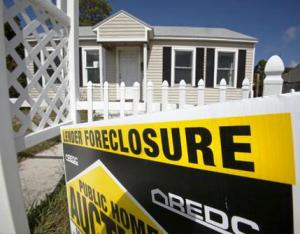|
Florida legislature trying to bust foreclosure backlog - again |
|
Article
Courtesy of The Palm Beach Post Published September 8, 2011 For the third consecutive year, Florida lawmakers will attempt to fix the state's foreclosure court mire with legislation that streamlines the process and, in some cases, gives banks quicker access to repossession. The proposed legislation, called the Florida Fair Foreclosure Act, has yet to be filed, but Rep. Kathleen Passidomo, R-Naples, is passing around a draft bill and seeking input. She said she's received "hundreds and hundreds" of email responses to her request and is making revisions before filing it for consideration during the 2012 legislative session.
bringing these actions. The irony is that time and time again we've seen that we can't trust them."
Some provisions of the current proposal include;
Attorney Tom Ice, of Royal Palm Beach-based Ice Legal, said requiring the plaintiff to specify its authority at the beginning of the case could increase efficiency. "Currently, the banks are not specific and will change their theory of ownership on the fly, sometimes in the middle of trial," said Ice, whose firm defends homeowners. "Without specificity, litigating against the bank is like pushing on a balloon. When you make headway in one area, something pops up somewhere else." But Ice said he's opposed to a provision that would allow a homeowner to seek only monetary damages if a house was wrongfully foreclosed on. This measure, Ice said, is mainly to protect title insurers who would have greater losses if the home had already been resold to a third party. "This fails to recognize that a home is more than a mere monetary asset to the homeowner because the homeowner can never get the home back," he said. Another concern for foreclosure defense attorneys is the hastened timeline for uncontested cases. Lynn Drysdale, an attorney with Jacksonville Area Legal Aid, said some homeowners are on a dual track system where the bank is considering them for a loan modification while also foreclosing on them. In those cases, Drysdale said the homeowner may ignore foreclosure paperwork, leaving their case uncontested in the eyes of the court. Still, with Florida's courts grappling with a mounting foreclosure backlog of 260,815 cases, 23,725 of which are in Palm Beach County, Drysdale said she is open to legislative solutions. "The possibilities are always there that the two sides can work out something that neither side is thrilled with but is a comfortable medium," Drysdale said. "I'm not sure I'm thrilled with the methods proposed, but that doesn't mean deliberations can't occur to ensure we still have due process in foreclosures." |
